Understanding Volatility in Aviator Game
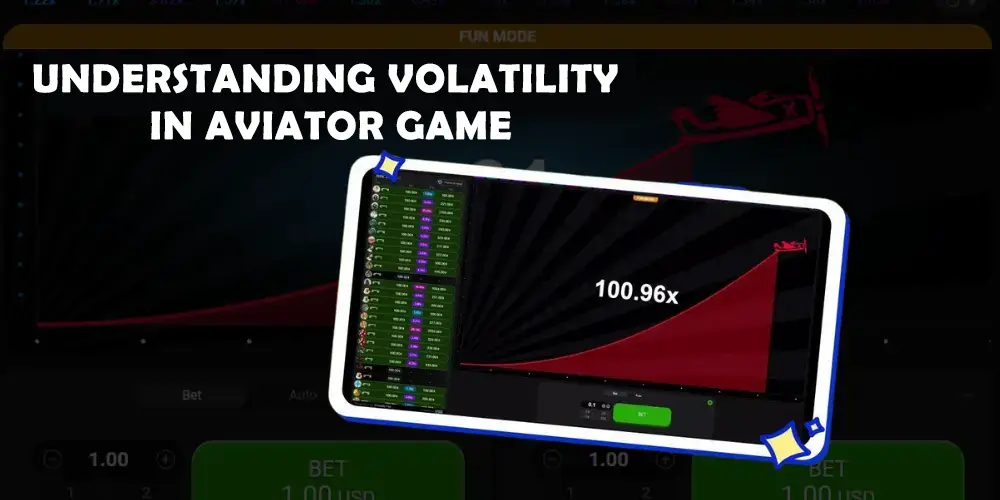
Introduction
The Aviator game has in a short period of time become one of the most discussed game in the online gaming world. It is simple (and therefore easy to play), but has the (relatively) tense element of deciding when to cash out before it crashes. But in addition to its simple mechanics, there is a strong idea behind it that defines the frequency of victories and defeats: volatility.
Other terms such as RTP or house edge many beginners may be conversant with, but volatility is one of the terms that still remain obscure to many people despite being a crucial element in gameplay. Simply put, volatility will define how frequently you win, and the size of the win.
Ignore this at your own peril as players who do not do it usually encounter surprise losses, emotional game play, and poor bankroll management. Knowledge of volatility, however, will allow making more educated bets, and improve overall performance in the long term.
This article will take us through the meaning of volatility in the context of Aviator game and how it is possible to hedge your bankroll.

What Is Volatility?
In gambling and games, the volatility is the degree of risk attached to a game. It makes reference to the likelihood and amount to be paid out with time. The volatility is high, therefore the game has large rewards with a less frequent payment. In low volatility games, there are smaller, but more frequent wins. This concept isn’t unique to Aviator. it’s a core mechanic in slots and crash games.
As an example of this, consider two gamblers. The other one is a low-volatility slot with small wins about every half dozen spins. The other is in a high-volatility slot, which may not playout over a very long duration of time. However, when they do it is pretty large.
Later on, the two could end up winning or losing the same amount yet the feeling is quite dramatic different. One gets to feel stable and constant. The other one is like a rollercoaster.
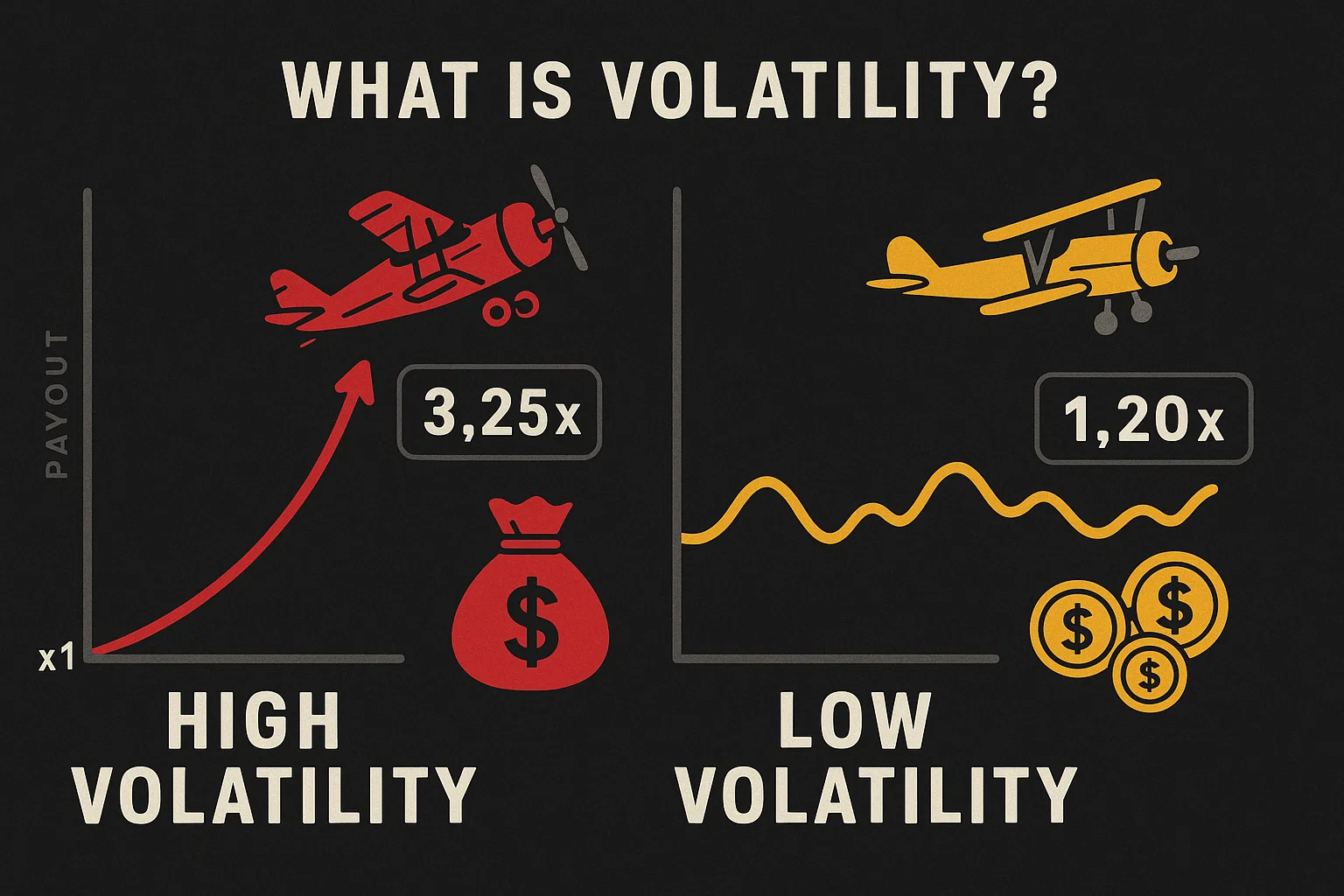
This is also the case of Aviator. The volatility is not consistent as the crash point is randomly generated in each session. A series of short flights may be succeeded by a series of long flights, or other way round. To be able to manage the expectations, one must understand this randomness.
Volatility in the Aviator Game
Aviator is a crash type of a multiplayer game in which a plane starts and goes up with a growing multiplier. The objective of the player is that he gets to cash out prior to the disappearance of the plane (crash). The more the plane flies in the air, the larger the multiplier and the larger the potential profits are. However, when the plane failed to come and the player waits long, he/she is forced to lose his/her stake entirely.
The concept of volatility enters this equation since the point at which the crash will occur is decided by a proven fair random number generator. It also implies that there is no pattern when it comes to how high the plane will be flying between one round and another. One round can culminate around 1.04x multiplier and the following round can increase to 200x and above. The great swings are what make the game volatile in nature.

In some instances, the airplane tends to crash prematurely. It forms a frustrating sequence of matches whose duration is very limited. This can be easily described as typical high volatility working: having lengthened lose streaks followed by a massive winning streak.
In more stable sessions, it is possible to observe that the plane achieved 1.5x to 2x multipliers quite frequently and subsequently crashed, which is lower volatility circumstances. These will not lead to huge wins as this would be a better opportunity to get small, regular payouts.
Another thing to note is that Aviator has a publicly visible seeding mechanism that identifies crash points. This takes out some of the randomness and the volatility, but not all of it. Although you may notice a pattern in the past 10 rounds, there will always be no guarantee that the pattern would repeat.
Why Understanding Volatility Matters for Your Bankroll
Most new players fall into a trap of playing every round like it is their first shot at a huge win with no comprehension that the concept of volatility dictates on how to bank with the bets. Unless you engage in a session by thinking that you will bring home a lot of money without doing a research on recent game trends or contemplating the level of risks at large, chances are you will lose money within a very short time.
The volatility will affect your bankroll through two primary ways.
One, at the point of high volatility, your bankroll may dwindle at a very fast rate when you are not winning.
Second, too much betting on a game without a proper strategy in the low volatility can result in small loses that will gradually eradicate your money.
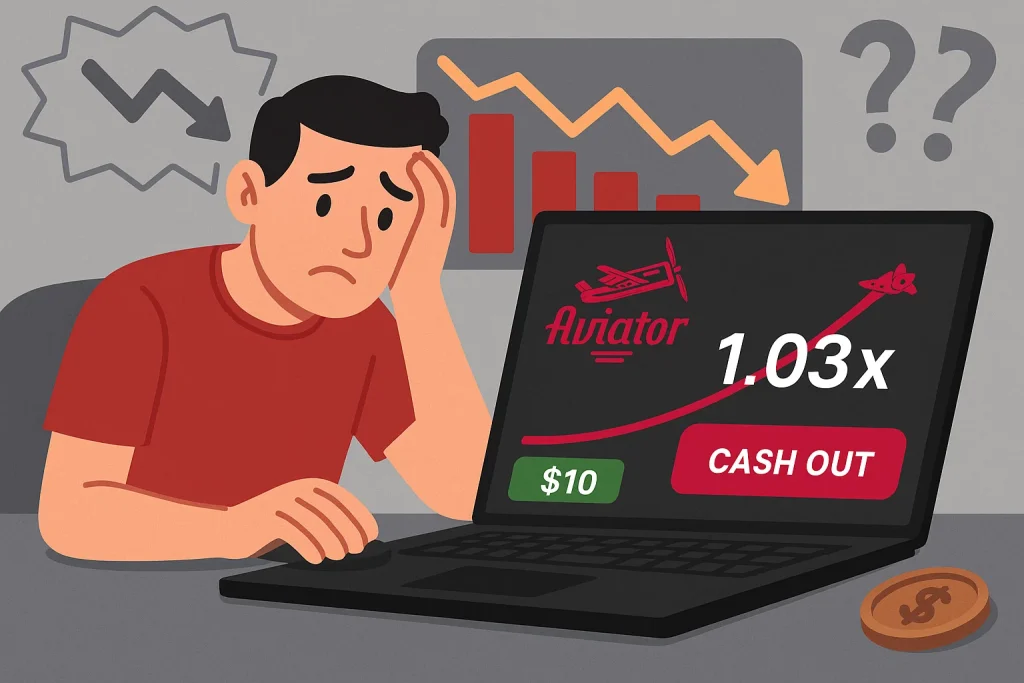
E.g., when betting 10 dollars every round, and you have a run of 1.03x crashes, then there is a high likelihood of you going bust unless you well cash out very late. However, early earnings attract smaller multipliers and this generates a mental tug of war. The understanding that these losing streaks are not the case of bad luck but volatility can make you calm down and change your strategy.
Consideration of volatility is the only way that allows the player to make decisions that are set within the boundaries of the bankrolls and the desired outcome of sessions. It is always better to approach the game of Aviator as an exercise of chances rather than certainty especially when one is a novice.
Strategies to Manage Volatility in Aviator
Provided that volatility is imminent in Aviator, the idea is to learn how to work with it. The less experienced players especially should arrive at the game with a systematic approach to the game to enable them make fewer emotional decisions and safeguard their casino deposits.
Bet Sizing Tips
Bets size will also affect the duration of your bankroll during unstable sessions directly. As a novice, one would want to avoid betting high on single spins with the possibility of pursuing the high multiplier.
It would be rather wise to place a bet of 1 3 percent of the overall ones per a round. It will provide you the opportunity to ride out of downswings more. As an example, when you are provided with 100 dollars in a bankroll, you are not supposed to bet more than 1-3 dollars on average per round.
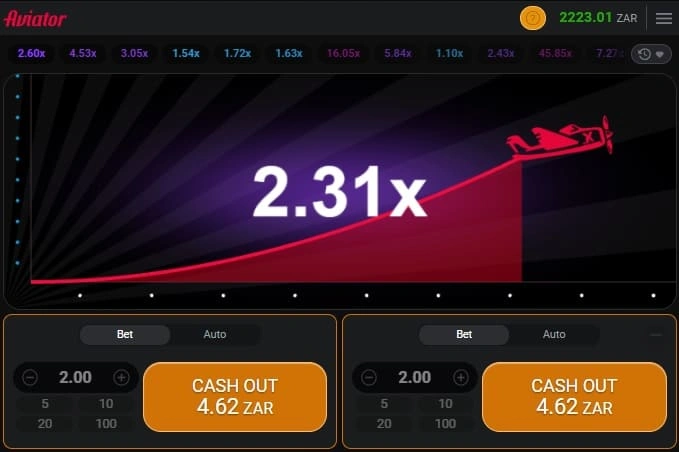
This is a more conservative manner which will keep you in the game longer and provide flexibility with regard to your strategy of alternation towards the volatility of the given session. In case you are having frequent short crashes, it makes sense to reduce your stakes, so that you weather the storm until things get much better.
Cash-Out Discipline
The difference between recreational and more strategic players is knowing when it is most opportune to cash out. It is possible to avoid rash decision making by setting multiplier targets before each round. As an example, a stable 1.5x or 2x cash-out has the potential to establish a solid background of long-term play.
One of the ways to do so is dual bets. You can place two bets of same size. One of them is to cash out early on a lesser, safer win and the other one is to hold out for a higher multiplier. This strategy will enable you to juggle risk versus reward and leave you with the excitement of risking a lot in the hope of getting a huge multiple payout, minus risking all of your money.
Session Goals and Stop-Loss Limits
Each of the sessions should be started with goals. This objectives must be outlined as far as victories and defeats are concerned.
There is an easy rule to stop playing when you either:
- Gained 20–30% of your starting bankroll or lost 10–15% of it.
Such limits could prevent some of the loss-chasing behavior, which can easily occur when volatility goes on a rollercoaster ride. By establishing and adhering to boundaries, you are taking Aviator more of a strategy game where it can be controlled rather than being a guessing competition.

Track Patterns Cautiously
You might feel like you can observe a pattern by observing the crash multipliers of the former rounds but that is not always the case. Although there is a history of past rounds that are depicted in the Aviator game, they are not predictive. Rounds do not depend on each other and the game itself has provably fair system where it is harder to manipulate.
Rather than go with the superstition, go with the round history as an overall measure of prevailing volatility. But you cannot base your entire strategy on short term trends. What matters more is to have faith in probability and deal with risk instead of attempting to predict the next large multiplier.
Tips for Beginners
As you start playing Aviator more regularly, keep these quick tips in mind:
- Understand that volatility is the game- there is no need to think of it as a bug or a glitch.
- Play small because you want to stretch your bankroll as well as have the ability to have changed strategies.
- It is not necessary to get big multipliers each round. One should strive to have a mix of low-risk high-reward shots.
- Practice on low stakes or in an exhibition mode until you are sure about what you are doing.
A losing streak causes beginner players to think that the game is indebted to them to get a win. Such attitude should be avoided. The fact that the game is random allows consequences of earlier games not to interfere with future games.
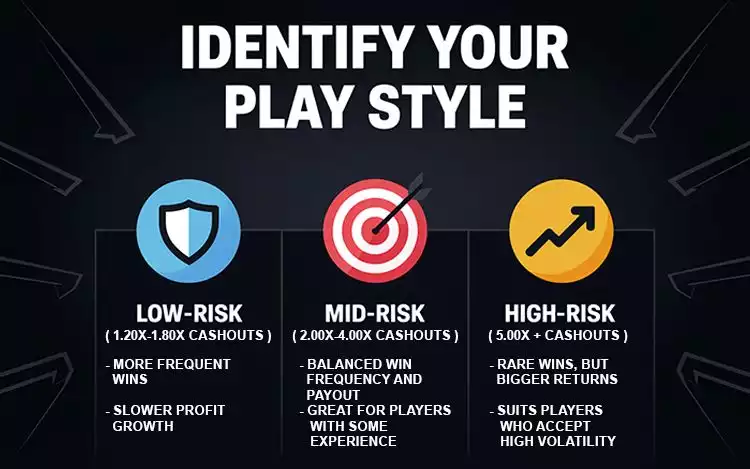
Tools and Mindset for Volatility Management
Other than betting strategies, proper attitude and the use of available tools will help improve your mindset about the game. Statistical overlays of average points of crash, the volatility, and streak data will be provided on other sites. These tools cannot guarantee a direct way of making better decisions, but you will improve by using them on a regular basis.
More to the point, your attitude will be your best friend. Emotion control in games where volatility is high is a successfully controlled game. One might also panic after a series of premature crashes or get over relaxed after hitting 100x due to luck. By realizing that there are also ups and downs in volatility, you will be more grounded and not act wildly.
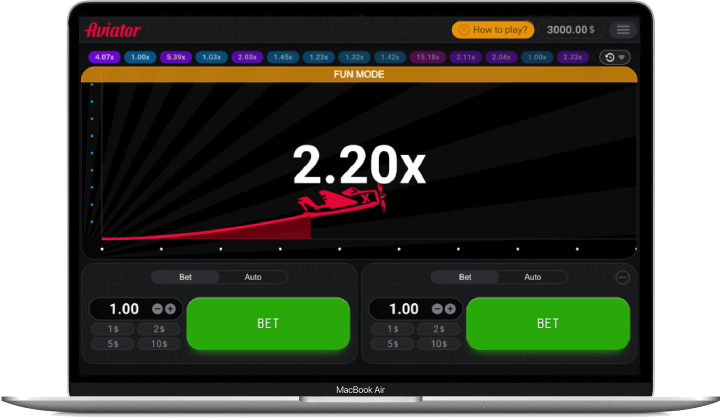
To become a disciplined player one should realize that short-term losses are no part of the game. You do not need to eliminate risk but deal with it. With a long-term perspective, you should save yourself the pressure that a particular session puts on you and avoid ensuring the emotional fluctuations affect you during a game.
Conclusion
One of the key factors in the Aviator game is the element of volatility. This is what makes it thrilling. It also allows lots of winnings. It means you can win large sums of money in little time. It can be a door towards your financial freedom.
However, when it is clearly understood how it works in the world of gambling. People may end up in a situation where they make instant decisions, betting too much of their money, and may lose it.
A volatility-savvy player is not only playing better but also taking better care of his or her money and making more intelligent decisions. The luckiest players in Aviator are not the most successful ones.
The most luckless players are the most disciplined. Be smart about it by arming yourself with knowledge, and you will have a greatly improved possibility of achieving long-term success.